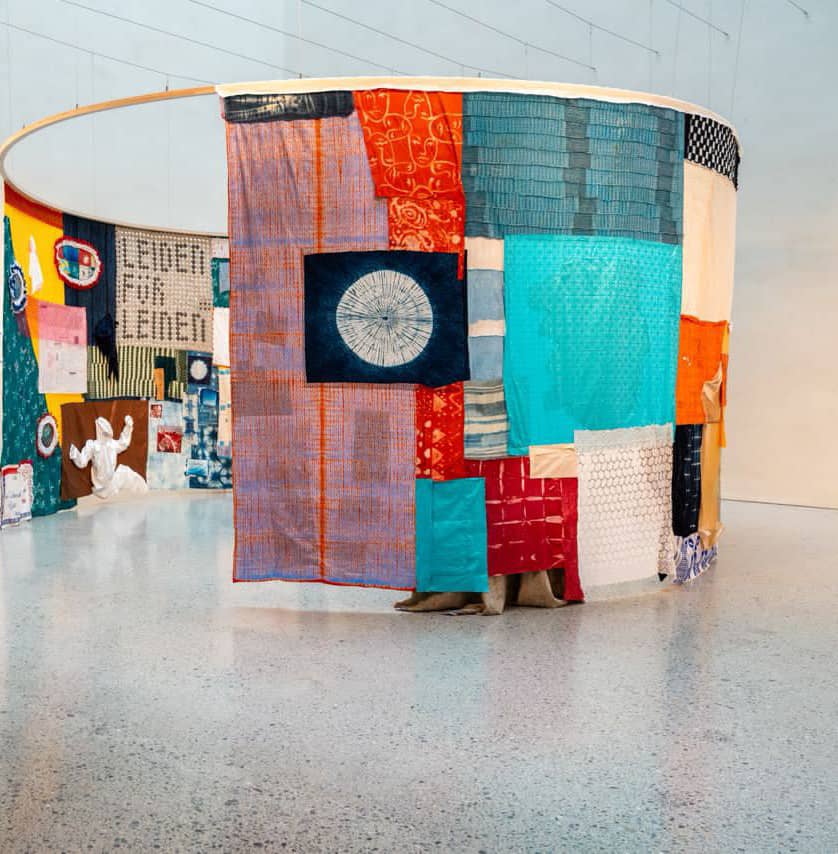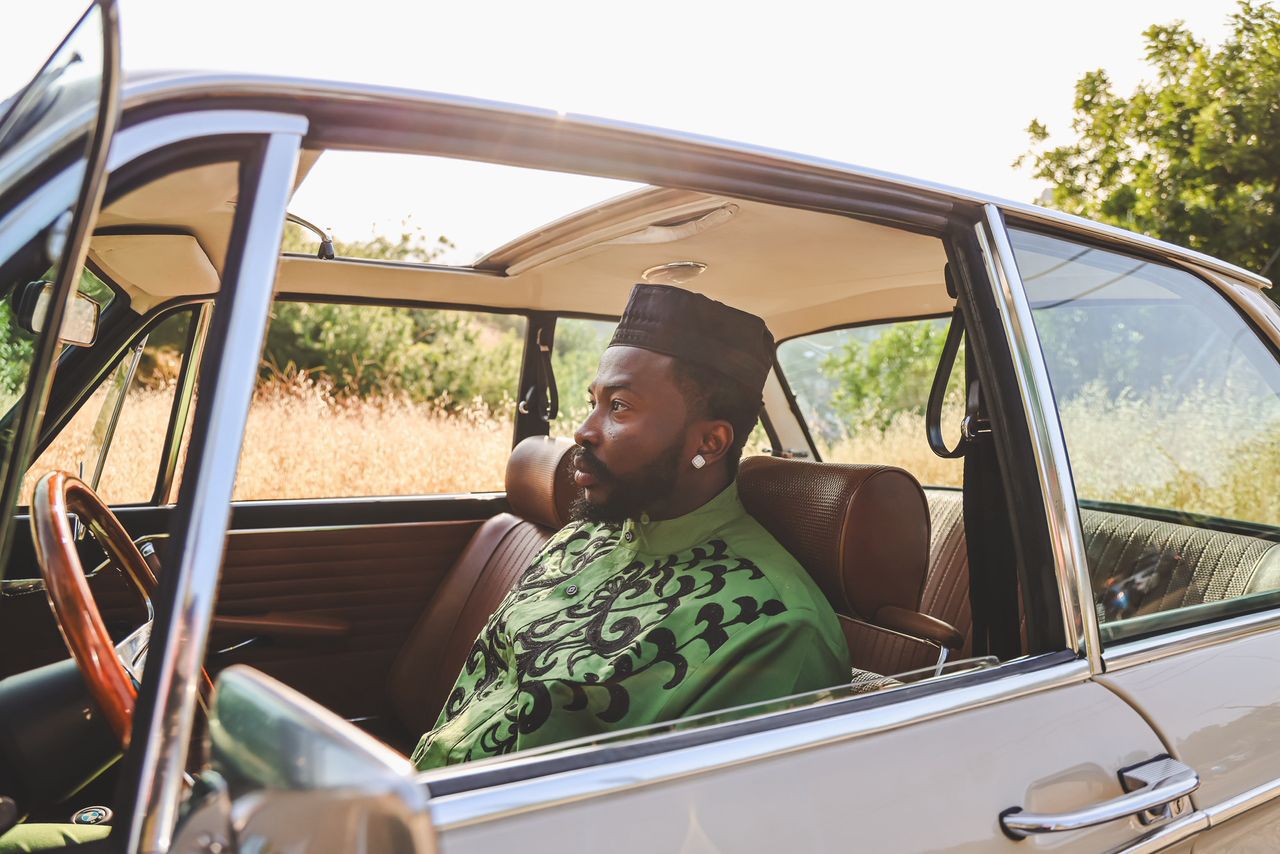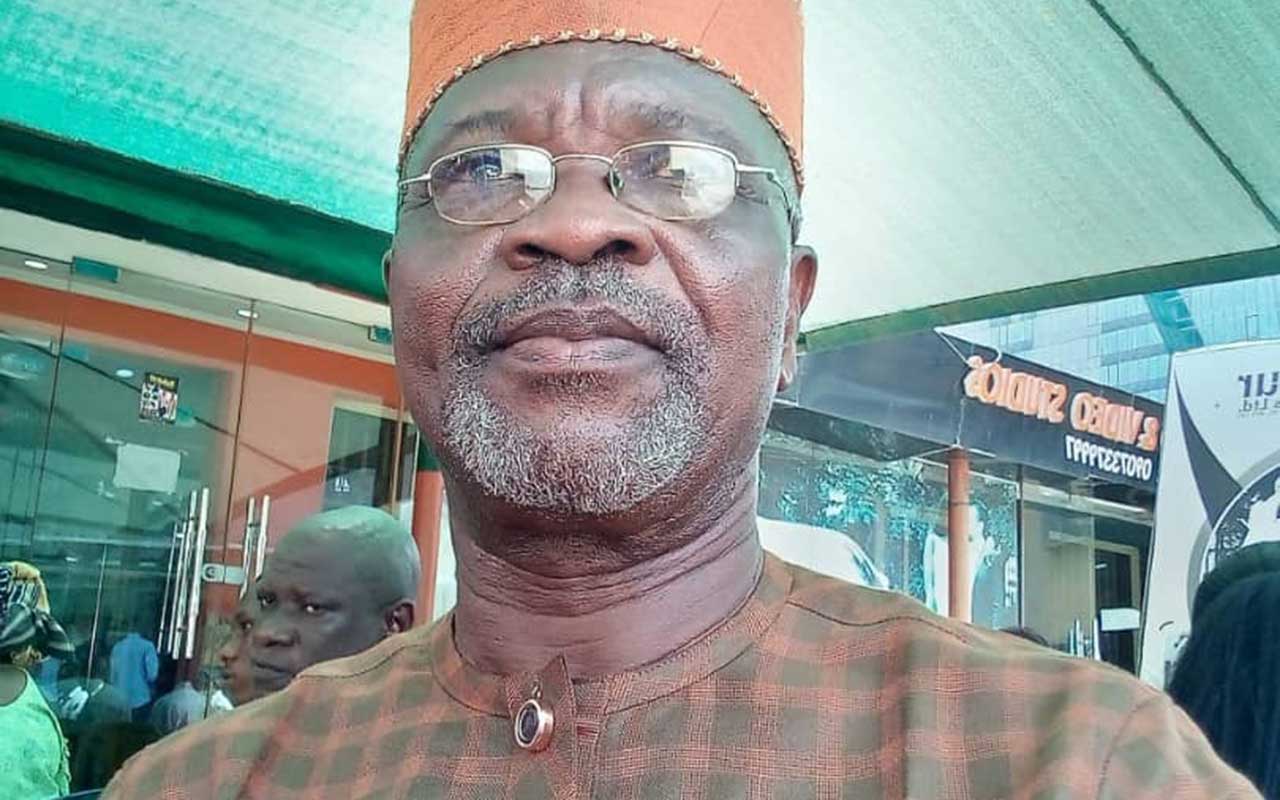The owu, fil, faden, thread and quilt will be on view from October29 to November 28, 2025 at the Centre for Contemporary Art (CCA Lagos), on McEwen Street, Yaba. At its core, the project explores the entangled colonial and textile histories linking St. Gallen, Lustenau, Lagos, and Dakar, tracing how fabrics such as lace, linen, and damask carry within them stories of trade, migration, and cultural exchange.
As the outcome of a multi-sensory artistic research project the quilt investigates the relationship between fabric, history, memory, and reclamation. After being developed at the Academy of Fine Arts Vienna, the project is supported by the Austrian Science Fund (FWF) under its Arts-Based Research (PEEK) programme, one of Europe’s most innovative research initiatives in the arts.
From October 2023, the quilt took off, and was produced over an 18-month period, at the Academy’s Augasse campus, Vienna, Austria. The making of the quilt involved trips to Vorarlberg, Austria, February 2024; Dakar, Senegal, May 2024; and Lagos, Nigeria, October 2024;, before its completion in April 2025.
From Vienna, the quilt travelled by train to the Vorarlberg Museum in Bregenz, a region historically linked to the lace boom of the 1970s that thrived on exports to Nigeria. The exhibition in Bregenz ran from April to June 2025.
For the Lagos edition, the show takes on the theme of reclamation, positioning the city as a site of intertwined histories-between global economies and local rituals, colonial legacies and postcolonial aspirations.
Through the quilt, the exhibition evokes the material and emotional economies of textiles, lace, cotton, linen, and beyond, tracing how they move through longing, aspiration, and loss, and how they mirror the enduring struggle for economic independence.
In July 2025, the quilt journeyed southwest to St. Gallen, Switzerland, where it featured in the 9th European Quilt Triennial at the Textilmuseum St. Gallen—an exhibition that brought together 45 contemporary quilt and textile artworks from 11 countries. There, the project was situated within the broader historical and artistic context of quilt-making as a form of material storytelling.
The quilt returned to Vienna on October 3, 2025, where a presentation at the Academy brought together students, researchers, scientists, and critics for an in-depth engagement with its layered narratives.
The artists employ methods such as interlacing, stitching, dyeing, piercing, spinning, and cutting, not only as techniques of making but as acts of remembering, questioning, and reimagining. The accompanying Pattern Book documents these gestures, unfolding an archive of hands, thoughts, stories, and places—a textile web of relationships and memory.
Developed at the Academy of Fine Arts Vienna, the project is funded by the Austrian Science Fund (FWF) under the Arts-Based Research (PEEK) programme, which supports pioneering research merging artistic and scientific inquiry—pushing the boundaries of knowledge and imagination.
The Lagos programme includes a two-day tying dyeing workshop with Yusif Sani Said, a fifth-generation indigo practitioner from the Kofar Mata dye pits in Kano, on 13–14 November 2025, 10:00 AM at CCA Lagos. The workshop reclaims indigenous textile production practices that have been eroded by imported goods such as lace and cotton.
Additional programmes include an Artist Talk at CCA Lagos on the opening day, a documentary screening titled Lace Relations at the J. Randle Centre for Yoruba Culture and History, Onikan, on 1 November 2025, and a Closing Talk on 22 November 2025.
The Lagos Programme is supported by the Centre for Contemporary Art (CCA Lagos) and the Revolving Art Incubator (RAI).






